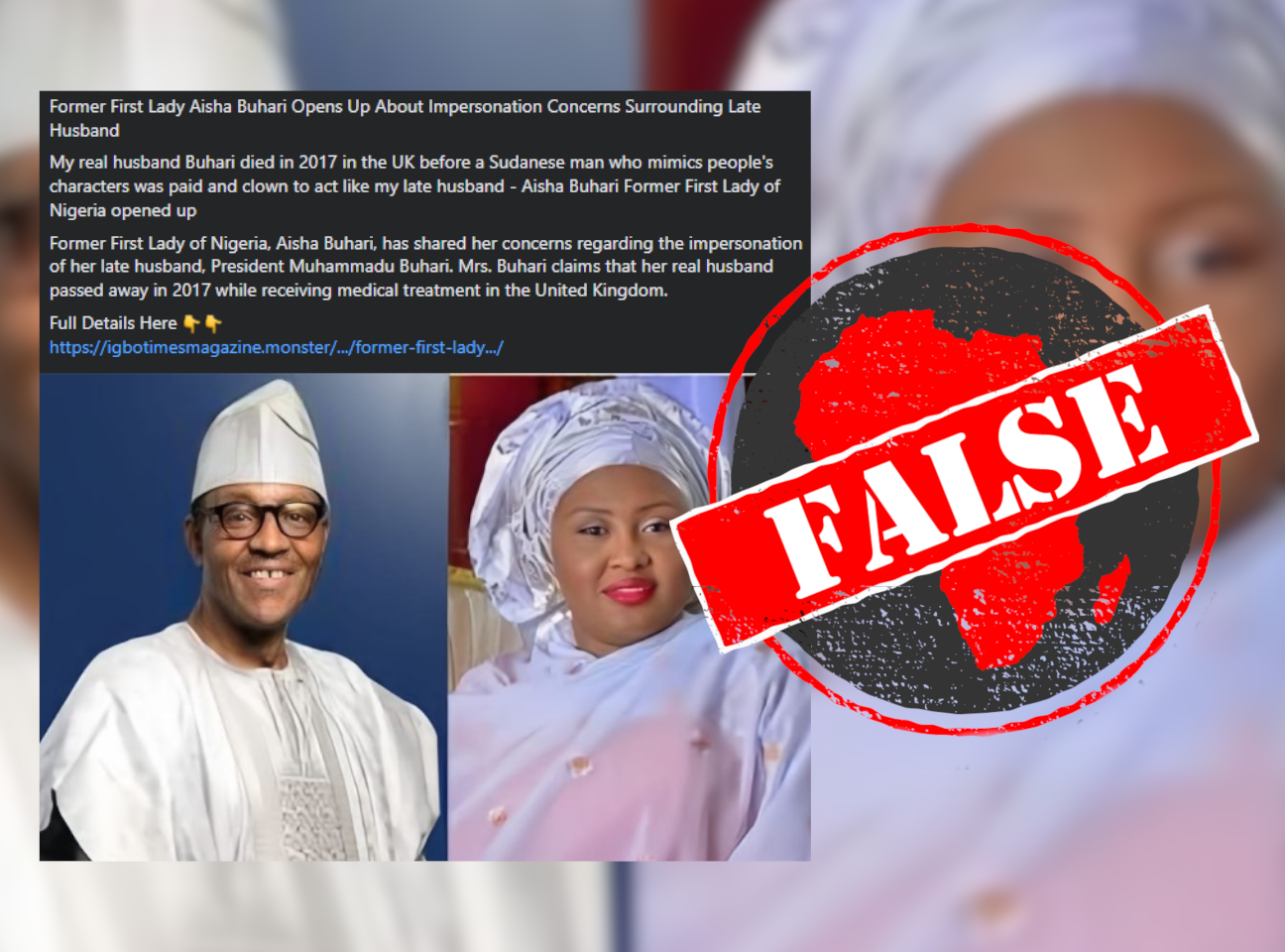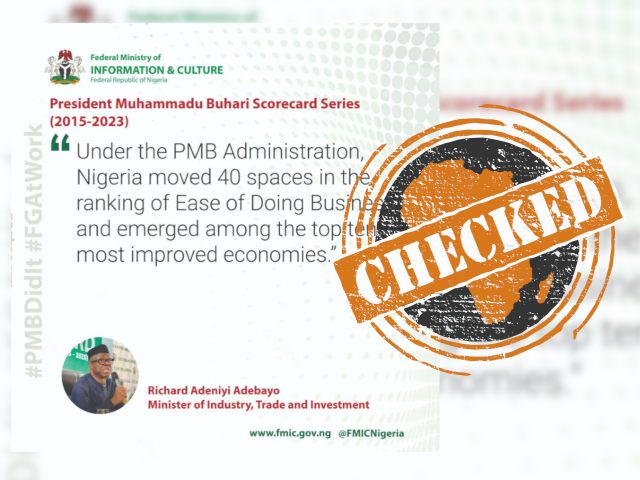IN SHORT: Several claims that Nigeria’s former leader Muhammadu Buhari died in 2017 are false, as are claims that his wife confirmed this in 2024.
During Muhammadu Buhari’s tenure as president of Nigeria, there were several false claims in 2017 and 2018 that he had died. These included during his repeated visits to the United Kingdom for treatment of an undisclosed illness.
Buhari served two terms as president of Nigeria. The first from 2015 to 2019 and the second from 2019 to 2023.
However, claims have surfaced on Facebook in 2024, including here, here, and here, that his wife Aisha said he died in 2017 while on a medical trip to the UK.
One of the posts reads, in part: “My real husband Buhari died in 2017 in the UK before a Sudanese man who mimics people’s characters was paid and clown to act like my late husband - Aisha Buhari Former First Lady of Nigeria opened up.”
In December 2018, Buhari denied that he had died and been replaced by a Sudanese body double.
But has his wife confirmed that this was indeed the case? We checked.

Death hoax still false in 2024
Africa Check has rated some claims of his death in 2019 and 2020 as false. There is no evidence that Buhari died while he was president and was replaced by a look-alike.
Given the bizarre and widespread nature of the claim, the former first lady’s statement that her husband died in 2017 would have been reported by both local and international media.
However, no credible local or international media has reported that she has made such statements.
The claim has been circulating online since 2017. It is still false in 2024.
Republish our content for free
For publishers: what to do if your post is rated false
A fact-checker has rated your Facebook or Instagram post as “false”, “altered”, “partly false” or “missing context”. This could have serious consequences. What do you do?
Click on our guide for the steps you should follow.
Publishers guideAfrica Check teams up with Facebook
Africa Check is a partner in Meta's third-party fact-checking programme to help stop the spread of false information on social media.
The content we rate as “false” will be downgraded on Facebook and Instagram. This means fewer people will see it.
You can also help identify false information on Facebook. This guide explains how.



Add new comment